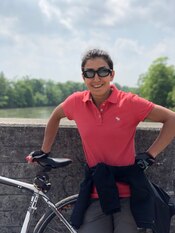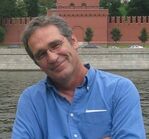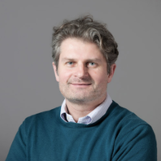Ellen Cameron, selected for prestigious fellowship, shares her research studying cyanobacteria3/19/2021  Ellen S. Cameron, PhD candidate, University of Waterloo Ellen S. Cameron, PhD candidate, University of Waterloo Ellen Cameron has been selected for the European Molecular Biology Laboratory - European Bioinformatics Institute (EMBL-EBI)-Sanger postdoctoral fellowship which combines experimental (wet-lab) and computational (dry-lab) approaches to study big data in biology. The combined approach allows researchers to have easy access to scientific expertise and well-equipped facilities to exploit complex information to make discoveries that benefit humankind.
1 Comment
Does contemporary forestry impact drinking water treatability? Soosan Bahramian investigates3/18/2021  Soosan Bahramian, PhD candidate, University of Waterloo Soosan Bahramian, PhD candidate, University of Waterloo Forested watersheds supply approximately 75 per cent of global accessible freshwater resources and serve as important sources of drinking water. Both natural and anthropogenic landscape disturbances in these watersheds can negatively impact water quality in downstream environments and jeopardize water security. Current PhD candidate, Soosan Bahramian, shares insights she gained during her Master's research. Although forests have not been historically managed for water, appropriate forest harvesting strategies have recently been proposed for the pre-emptive mitigation of landscape disturbance effects (e.g., wildfire and flood) on source water quality and treatability. However, this must be implemented strategically such that it does not ultimately deteriorate source quality. Soosan Bahramian, graduate student in Waterloo’s Department of Civil and Environmental Engineering, is investigating the potential impacts of contemporary forest harvesting on water quality and treatability in Professor Monica Emelko’s forWater project. Krishnappan BG, Stone M, Granger SJ, Upadhayay HR, Tang Q, Zhang Y, Collins AL. Experimental Investigation of Erosion Characteristics of Fine-Grained Cohesive Sediments. Water 2020, 12(5): 1511. Webinar: Source water protection at the policy-science-stakeholder nexus: A narrative from England3/16/2021 We are excited to announce two upcoming talks with Professor Adrian (Adie) Collins, hydrologist and head of Sustainable Agriculture Sciences at Rothamsted Research North Wyke in the United Kingdom.
|
forWater NetworkThe Network provides insights into new scientific research for safe, secure drinking water---globally---which starts with resilient forests Archives
October 2023
Categories |




 RSS Feed
RSS Feed

